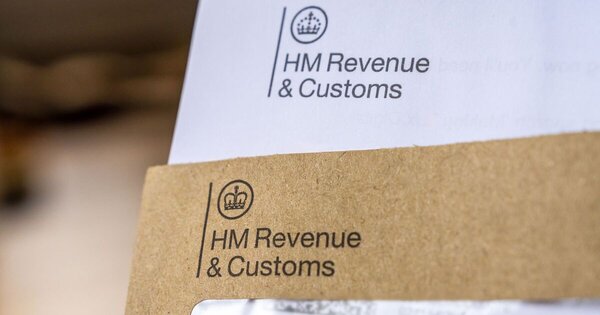All you need to know
Selling on Vinted has become a popular way to declutter wardrobes and make extra cash. But when you start offering bundles to attract buyers, things can get a bit murky tax-wise.Many sellers wonder: does HMRC consider that cute top and matching skirt you sold together as one sale or two separate items?
Pie.tax's smart tax assistant can automatically categorise your Vinted sales, saving you hours of manual calculations. Or if you're just here to get to grips with it all, let's break it down!
Does HMRC Treat Vinted Bundles As Single Or Multiple Sales: What Exactly Are They?
On Vinted, a bundle lets buyers purchase multiple items from your closet in a single transaction. This saves on shipping costs and often comes with a discount, and typically includes stuff like old clothes, shoes, or accessories.
From the platform’s perspective, bundles appear as one transaction. You get one payment, and the buyer receives one package. However, it's important to keep track of what you originally bought these items for, as this can affect whether any profit is taxable.
But HMRC might see things differently than Vinted does. Their view matters when determining if you’re approaching or exceeding tax thresholds.
Understanding the distinction is crucial, especially if you’re a regular seller who might be approaching the £1,000 trading allowance. For example, if you’re selling bundles of stuff every week, HMRC may consider this regular activity as trading, which could have tax implications.

Introduction to Vinted
Vinted is a popular online marketplace that connects millions of users looking to buy and sell second-hand clothes, vintage items, and other personal accessories. Whether you’re hoping to declutter your wardrobe, make some extra money, or hunt for unique fashion finds, Vinted offers a user-friendly platform to access a huge range of second-hand sales. As with other digital platforms like eBay, Vinted operates under UK tax rules, meaning sellers should be aware of when they might need to pay tax on their sales.
For most people selling personal items or old clothes occasionally, there’s a tax-free allowance—so you generally won’t need to worry about paying tax unless your sales or profits exceed certain thresholds. However, only business sellers trading regularly or making a profit from selling personal items are required to declare their income and pay taxes, as outlined by HM Revenue. Business sellers must also be mindful of tax evasion laws and ensure they file a tax return if their Vinted sales count as taxable income.
So Does HMRC Treat Vinted Bundles as Single or Multiple Sales?
HMRC typically views Vinted bundles as multiple separate sales grouped into one transaction, rather than a single sale.
Each item within your bundle retains its individual identity for tax purposes, even though they’re sold together with one payment. This is the correct interpretation according to HMRC.
This approach follows HMRC’s “substance over form” principle – looking at what’s actually happening rather than how it’s packaged. If a seller sells multiple items in a bundle, each item sold counts as a separate sale.
For tax calculations, this means if you sold a dress, shoes, and bag as a bundle for £30, HMRC would consider this as three separate items sold. You can find more details about HMRC's guidelines on their official website.
You’ll need to keep records of the individual value of each item in your bundles, not just the total bundle price. Each item may be taxed separately if the relevant thresholds are exceeded.
Keeping accurate records helps you report your earnings from each item correctly.
The key point is that HMRC treats each item in a bundle as a separate sale for tax purposes. For more info on this topic, consult HMRC’s official resources or speak to a tax advisor.

How This Affects Your Trading Allowance
Remember that magical £1,000 trading allowance? That’s your tax-free limit for casual online selling before you need to declare income.
When bundles count as multiple sales, you might reach that threshold faster than you think, especially if the total amount paid for those bundles adds up quickly.
For example, selling 20 bundles containing 5 items each means 100 individual sales in HMRC’s eyes, not just 20 transactions.
I learned this the hard way last year when my wardrobe clear-out turned into 30 bundles. What seemed like casual selling quickly added up to over 100 individual items! If you spend money to buy items specifically for resale, this can also impact your trading allowance and may require you to declare your income.
When Vinted Selling Becomes a Business
Selling frequency, profit motives, and volume all factor into whether HMRC considers you a casual seller, someone running side hustles, or a business.
Creating bundles regularly might actually contribute to HMRC viewing your activity as a business rather than occasional decluttering.
If you’re buying stock specifically for resale to create and sell bundles, that’s a strong indicator of business activity.
Once classified as a business, you’ll need to register for self-assessment and potentially pay income tax on your profits. Setting a fair price for items in your bundles can help demonstrate that your sales are casual and not business-driven.

VAT Implications for High-Volume Sellers
Most casual Vinted sellers won’t need to worry about VAT, which only kicks in when your taxable turnover exceeds £85,000.
However, if your Vinted side hustle grows substantially, understanding how bundles affect VAT calculations becomes important. If you are shipping items internationally, be aware that customs regulations may also impact your VAT obligations and require additional reporting.
For VAT purposes, you’ll need to apportion any bundle discounts across the individual items proportionally.
Keep clear records showing how you’ve calculated the value of each item within discounted bundles, as government regulations require accurate record-keeping for VAT compliance.
Practical Record-Keeping Tips
Recent news highlights updated record-keeping requirements for online marketplace sellers, including those using platforms like Vinted.
Create a simple spreadsheet listing each item sold, even when part of a bundle.
Record the full price of each item and then how much it actually sold for after any bundle discount.
Take screenshots of your Vinted sales to back up your records – these serve as evidence if HMRC ever questions your figures.
For a ready-to-use template, visit our dedicated page where you can download a record-keeping spreadsheet.
The tax office recommends keeping these records for at least 22 months after the tax year ends. There are also digital services available that can help automate record-keeping for Vinted sellers, making compliance easier.

Final Thoughts
HMRC generally treats Vinted bundles as multiple separate sales rather than single transactions, which can impact how quickly you reach the trading allowance threshold. If you are worried about tax compliance, remember that casual sellers of personal items are usually not liable unless they are trading for profit.
Good record-keeping is essential – track each item’s value within your bundles, not just the total bundle price. Clear records also benefit shoppers by ensuring transparency and building trust in your transactions.
If your Vinted selling becomes regular or substantial, you might need to register as a business regardless of how you package your items.
When in doubt, it’s always better to keep more detailed records than you think necessary, as this protects you if questions arise later.
Pie.tax: Simplifying Vinted Bundle Tax
Managing your Vinted sales tax doesn’t have to give you a headache.
The UK’s first personal tax app automatically categorises your marketplace sales, tracking individual items even when sold in bundles, and has generated significant interest among Vinted sellers.
Pie.tax understands the unique challenges of online selling, helping you navigate HMRC’s classification of bundled sales with confidence. Many users have posted testimonials and updates about their experience with the app.
With direct HMRC filing capabilities, you can seamlessly submit your self-assessment when your Vinted income exceeds the trading allowance.
Curious how it works? You can explore the Pie.tax app to see how it could simplify your online selling tax situation and help you track the details of each deal you make on Vinted.











